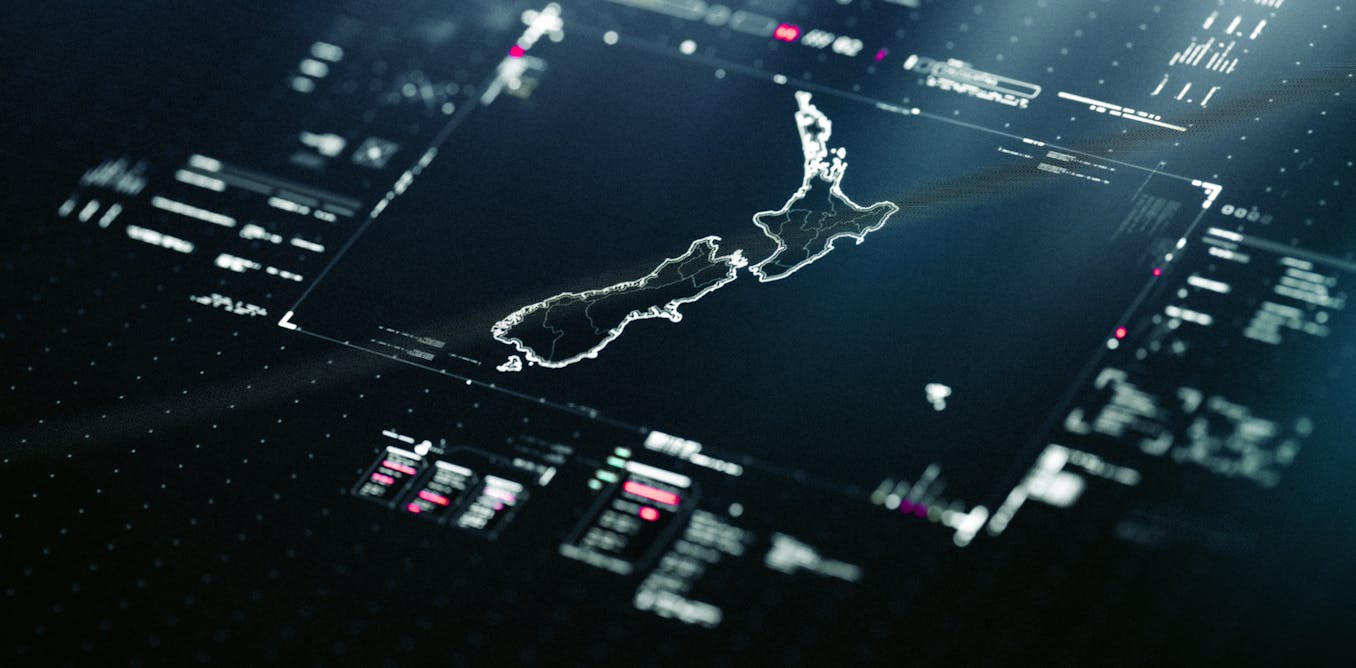Roughly 150 years ago, Harvard University’s William James became one of the first educators to offer a psychology course in the United States. Among other ideas, James put forth the notion of a “stream of consciousness” and encouraged his students to explore it, hoping the concept would lead to a spring of new ideas in the nascent discipline.
To no avail. In 1913, psychologist John Watson proposed that legitimate psychology had to be based on what we objectively observe, not suppositions about someone’s mental state. By the 1930s, the reductionist, radical behaviorism of B.F. Skinner dominated the field. Living things (apart from humans) were viewed as automata, and thinking about subjective experience was de facto banned from experimental psychology.
In his most recent book, The World Behind, the writer and neuroscientist Erik Hoel described this period — which lasted until the 1990s — as a “consciousness winter,” an artful phrase that captured the lack of new, groundbreaking ideas in the field. Since then, Hoel writes, we’ve seen a bevy of new ideas and scientific research about consciousness — a true spring if there ever was one. Among them: Integrated Information Theory. At its most basic level, IIT argues that consciousness arises from integrated information within a physical system, and it tries to understand the properties of experience within that system using math and neuroscience.
Hoel would know. He earned his PhD at the University of Wisconsin-Madison under Professor Giulio Tononi, the godfather of IIT. He later created causal emergence theory, which offers a framework for how causality can emerge within a large system when its constituent parts only appear weakly connected — how we are composed of atoms, for instance, and we are conscious, but atoms are not.
After a hiatus to write books — both fiction and nonfiction — and a popular Substack, The Intrinsic Perspective, which seeks to bridge the cultures of science and the humanities, Hoel returned to scientific research, publishing a paper on the math of emergence. I caught up with him to chat about the next generation of consciousness researchers, where he thinks his field is headed, and his fears that a new consciousness winter is coming.
Consciousness is often portrayed as tricky to define, but you disagree. What is the accepted, honed definition within the field of consciousness research?
People act like the definition of consciousness is some great mystery, but what I think is actually tricky is coming up with a satisfactory theory of consciousness. Defining it is just something you do along the way, and it’s more about everyone “pointing” to the same thing. If I don’t know that water is H2O, I can still point to water. I think this has happened in the last three or so decades in consciousness research. We’re mostly all pointing to the same thing.
The working definition of consciousness is your personal stream of experience that begins when you wake up in the morning and vanishes when you enter a deep, dreamless sleep. It’s what it’s like to be you.

Is Integrated Information Theory still your preferred theory of consciousness?
It’s my preferred theory in that it’s far better than other theories. As in, it actually deserves the term “theory.” I’m not sure others really do. Currently, there is no theory I’m aware of that can actually operate as a theory of consciousness besides IIT. This is obvious once you get rigorous about it. Given any system, like a brain state, a theory should be able to map that to the set of all possible experiences — sensations, thoughts, etc. IIT can at least give you an answer, dealing with all the complexities involved. It can do that for any system you can think of, too.
Other theories can’t even get close. For instance, what scale of description do you use in the mapping? I can describe your brain in terms of atoms, molecules, neurons, minicolumns, brain regions, and so on. Which do I use? Can any other theory answer that? Generally, no, of course not. They have no idea because they never get that far. IIT gives an answer. You may not agree with it, but it’s an answer, which is far better than no answer.
There’s now a well-funded effort in consciousness research in which scientists with opposing views or hypotheses work together to design and conduct experiments to resolve their disagreements through joint research and publication. Do you think this is productive?
I do, and I support this. But I also think we are not bottlenecked by empirical data. One day, people will realize that the empirical tools of neuroscience are simply not up to the task. You can’t go “data first” for that reason. The real bottleneck is good ideas. This is very rare for a field. Or any situation in general.
If some rich donor actually wanted to have a 15% chance of changing the entire world, they’d sit down and give the two or three dozen young theorists working on consciousness a few years of funding to do whatever they like, as long as it’s on consciousness. I don’t think you could get that expected value for an investment anywhere else. It would be a lot cheaper than funding a ton of adversarial collaborations, too.
In 2023, in the wake of the first large adversarial collaboration pitting integrated information theory against global neuronal workspace theory, many leading scientists in the consciousness field signed a letter labeling IIT as pseudoscience. You publicly criticized that letter, saying you feared the result could be a new “consciousness winter.” What did you mean?
I was specifically worried about a repeat of what happened in the sciences for a major chunk of the 20th century, where consciousness was a verboten word. In fact, if you just look up the frequency of the word “consciousness,” it has had a huge dip, beginning around the turn of the century, reaching its lowest point around 1940, and then slowly climbing upward again. Consciousness was simply thought of as too philosophical, too strange. But the issues never went away — they were just stuck in a box for decades. The second that box was opened up in the 60s, 70s, and all the way in the 1990s, all the old questions came roaring back.
What could a new winter look like?
Like funding drying up. Like interest drying up. A cultural and intellectual dismissiveness. I think internal criticism and feuding could drive it, but also AI could, too. If AI attains general intelligence [allowing it to perform tasks as well as humans], I think the median take will be that AI is not conscious, but is intelligent, rather than that AI is both conscious and intelligent. But that first opinion has an obvious implication, which is that our consciousness doesn’t matter much. Which may then further imply either consciousness is not even worth studying or it doesn’t even exist. I think that’s the most likely route to another consciousness winter.
You represent a new, younger generation of scientists now tackling the riddle of consciousness. How do you differ from prior generations?
There are a lot of ex-mathematicians and ex-physicists in the field now. They bring something new, which is the ability to have formal theories that make precise predictions, have exact, definable rules, and so on. For decades now, there’s been a lot of “theory slop” in consciousness research — a holdover, really, from neuroscience in general. Things like “maybe it’s a big workspace” or “maybe it’s thoughts thinking about other thoughts.” All that stuff sounds good — and I’m not saying it’s bad — but it’s absolutely something that should be moved beyond. Theories of consciousness that operate at a broad linguistic level were great in the 1980s. Now is the time to say specific things and propose a specific quantification.
For much of its past, consciousness research has always seemed rather antagonistic. Competing theories clash along with big egos. Do you think your generation of consciousness researchers is starting to eschew this status quo?
I do think that there’s less competition. One reason is simply that you don’t have to be famous in another field anymore to actually be a consciousness researcher. A recipe for big egos is to require someone to be previously famous to give ideas. That strange requirement is gone now, and so the field is less antagonistic for the younger generation more broadly.
You wrote that you were repeatedly told philosophy is dangerous during your PhD. Do you agree?
Quite the opposite. There are a large number of neuroscientists who would benefit significantly from reading more philosophy. Too often, there’s naivety, and so you get ideas promoted that are extremely simple, almost childlike. But at the same time, philosophers tend not to respect scientists enough. Ultimately, it will be the scientists who make progress on consciousness, not philosophers. So we need more philosophy from scientists, and more science from philosophers.
Why is it so important to have a scientifically validated theory of consciousness?
Advances could be almost unimaginable, since we don’t know the affordances a theory allows. For just table stakes, there are things like being able to make informed moral choices. Let’s say it turns out, with a theory of consciousness, that chickens are not conscious. They feel nothing. And certainly not pain. This radically changes the entire notion of vegetarianism. We can freely eat chickens the same way we eat corn. A small example, but the point is that a huge host of moral considerations will be impacted. Where do the boundaries of the moral circle begin and end?
Beyond the table stakes, there are things like building a conscious AI. Perhaps those would have different capabilities compared to large language models, like being more trustworthy and legible.
Things can get very wild depending on what the theory allows. There’s some nonzero probability it allows for extremely sci-fi possibilities like body swapping. I’m being serious. We simply have no idea until we have, at least, a very attractive draft theory, which we don’t.
This article Why the 21st century could bring a new “consciousness winter” is featured on Big Think.

The post “Why the 21st century could bring a new “consciousness winter”” by Ross Pomeroy was published on 08/20/2025 by bigthink.com





































Leave a Reply